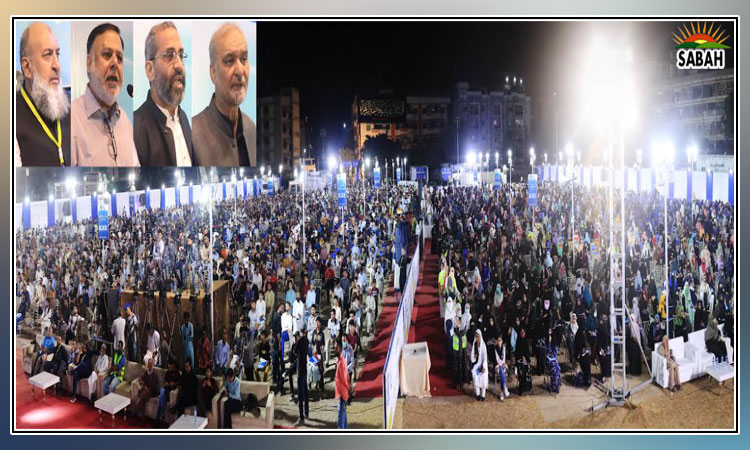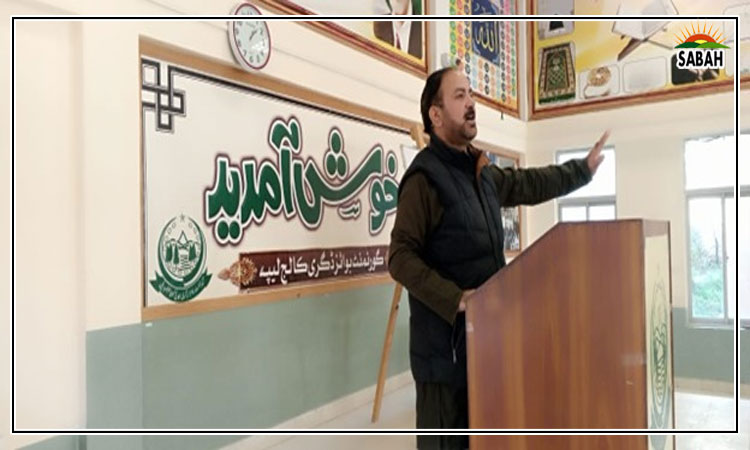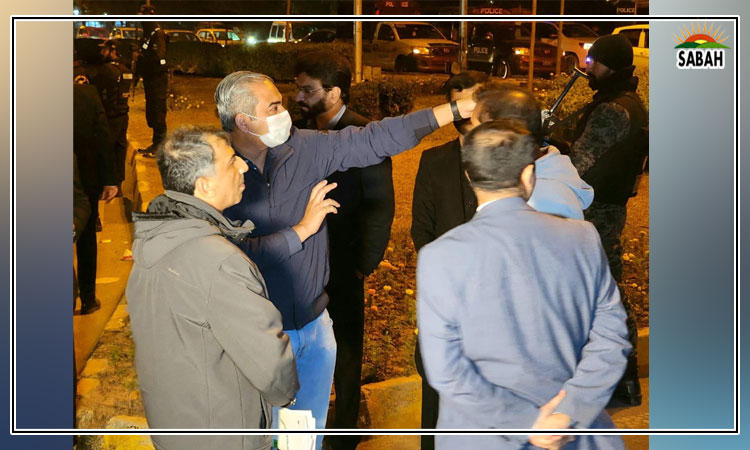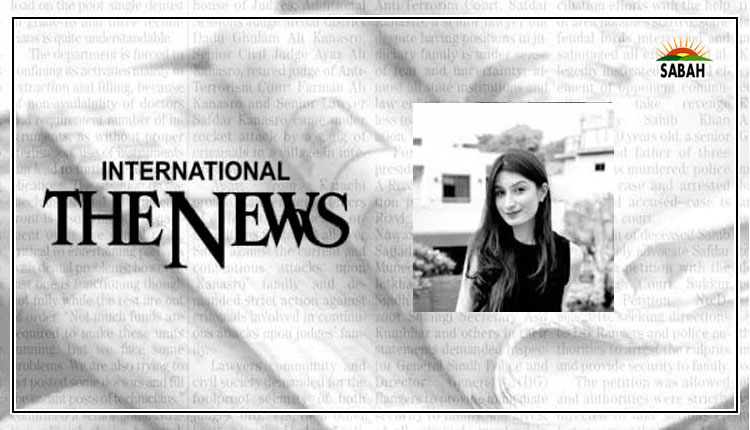Breaking barriers…Ayman Zafar
While the 21st century has ushered in remarkable technological advancements and a global movement for gender equality, it is disheartening to acknowledge that the legal field in Pakistan remains firmly entrenched in its male-dominated traditions.
In todays day and age, one might naturally expect that such progress in global consciousness would coincide with a corresponding shift in peoples mindsets and ultimately within the societal norms (which to no surprise have also been set in stone by men themselves) that have been established over the years.
Unfortunately, the unforgiving reality we face is such that this change remains elusive, particularly within this profession. I must admit that it really is a male dominated field, even as we acknowledge the undeniable progress made by numerous accomplished women in the legal profession. Lets pause and ponder: it took only 75 years before we welcomed our first female justice in the hallowed halls of the Supreme Court (a distressing reminder that significant steps towards gender equality are often painstakingly slow in the legal realm).
It is essential to clarify that this reflection is not intended to undermine the achievements of female legal professionals in any manner whatsoever, but rather to highlight the pervasive barriers that they continue to face. I myself sit today in a bullpen surrounded by no less than five male associates and yet my confidence precedes me in all my tasks. However, this self-assuredness does not shield every confident female practitioner within our profession from moments of self-doubt and occasional intimidation, particularly when these emotions surface in the demanding milieu of the courtroom. It also does not eliminate the evident surprise people exhibit when they learn that youre a practising female lawyer.
Expressions like Oh really?, Isnt it difficult?, Do you actually go to court as well? are just a few examples of the questions that women lawyers have heard, at least once if not multiple times from those around us. They not only serve as a reminder of the prevailing stereotypes that continue to persist amongst us, but also underline the imperative need for our society to recognize and embrace the multifaceted roles and capabilities that female legal professionals bring to the table. In a profession known for its demanding and unforgiving nature, one cant help but question: why must we additionally contend with these perplexing realities when in fact they should not exist in the first place (or so would be the case in an ideal world)?
I often come across people who become enraged at the mere idea of women speaking up, simply asking to be recognized and I cant help but wonder why they feel as if their own rights are being taken away simply by the idea of extending these rights equitably to their female colleagues. And when I say this, I dont mean to diminish the valuable efforts and contributions of the men who actively ensure and fulfil this notion.
Personally, Ive had the privilege of being part of an organization where I have only ever received words of encouragement and enjoyed an equal seat at the table. However, the moment I step beyond the protective confines of my firm and venture into the broader world, I am invariably met with the same entrenched narrative one that vividly illustrates the disparities that exist within every corner of this country. Then again, why should one consider themselves fortunate to be part of an environment where equal treatment is perceived as a matter of luck rather than a guaranteed right? The crux of the matter lies in why equality is not an inherent and guaranteed standard within our profession. In a rapidly evolving world, one would anticipate a more substantial shift in prevailing attitudes and conventional practices.
However, I think having come this far, where self-aware and determined women within the legal profession understand and recognize their integral value and competence, it becomes abundantly clear that there should be no barriers preventing the equitable provision of opportunities to them. Their presence and equal access to opportunities not only serve as a testament to the tenets of fairness and impartiality, but also strengthen the legal field by bringing diverse perspectives and talents to the forefront.
It is essential for the profession to recognize and embrace this potential fully, not as a matter of chance or charity but as an essential step towards a more inclusive, progressive, and ultimately, a more effective legal system.
Courtesy The News












